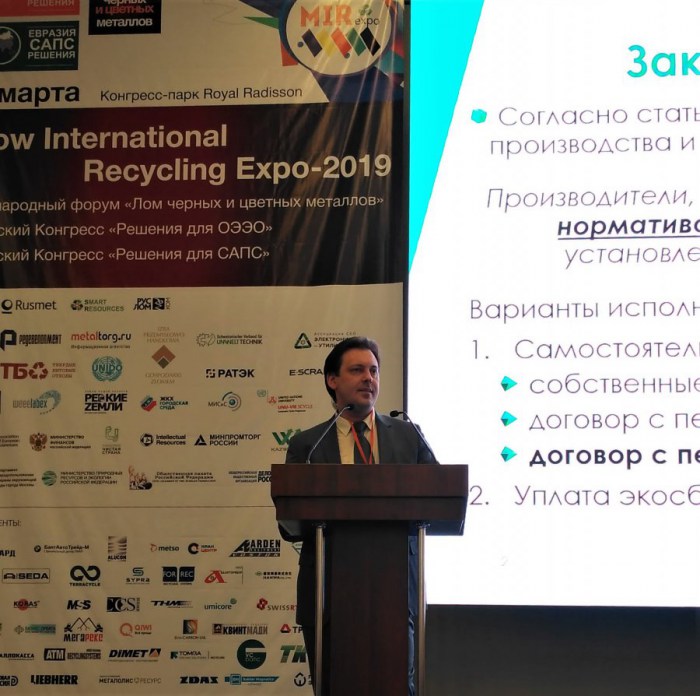On March 22, 2019, within the framework of the Moscow International Recycling Expo-2019, the Executive Director of EcoTyresUnion S. A. Podoynikov and legal counsel A. E. Zakharova took part in the sessions «On recycling of tires and rubber products», «On Environmental fees and recycling fees. Application of current legislation, risks and recommendations».
At the session «On recycling of tires and rubber products», S. A. Podoynikov presented a report on the topic: «Implementation of extended responsibility of tire manufacturers for recycling of waste tyres». In his report, S. A. Podoynikov stressed the importance of a systematic and well-thought-out approach to the organization of the tyre and rubber products recycling industry. By its own example, EcoTyresUnion proves that the complex nature of the strategy helps to achieve significant results in a short period of time.
Thus, the strategy of EcoTyresUnion consists of three interrelated key areas: the selection of trustworthy real recyclers through an annual tender, the organization of collection of waste tires in all segments of their presence, the development of long-term partner programs for the development of the waste recycling industry.
The systematic nature of the EcoTyresUnion’s activities helps to ensure a consolidated, environmentally-oriented approach from the business community, which allows to comprehensively develop the recycling market through additional investments in its specific participants – recyclers of waste tires. In particular, on the one hand, thanks to rigorous selection and control of processors implemented by EcoTyresUnion, tire manufacturers understand that real recycling took place, which increases their confidence in the results guaranteed and the interest in economic incentives for development of infrastructure of waste recycling business. On the other hand, recycling companies that have received financial support and realized the prospects for further partnership are also focused on improving and further growth of their production capacities, actively participating in collection programs, and improving the infrastructure of their enterprises. Thus, there is a complex stimulating exchange, which has important socio-economic effects: the formation of a stable and transparent business environment in the national waste recycling industry, which has just begun to gain momentum; increasing the economic potential of the business community; strengthening the environmental orientation of business; developing a comprehensive, real tire recycling system.
